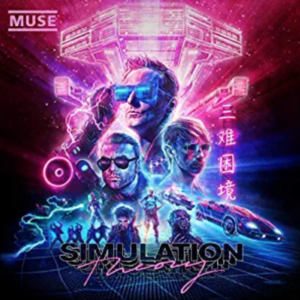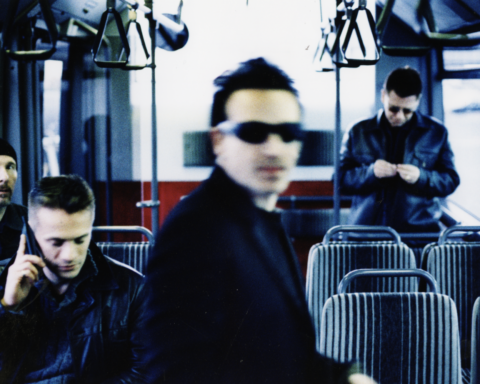On Nov. 9, English rock band and what-the-hell-was-that specialists Muse released Simulation Theory, their eighth studio album, and the record is an extraordinary sound.

Muse has always been a weird, and often beautiful, proposition: a big-riffed bunch of space opera specialists who hit greatness early in their career (you won’t find many third albums as straightforwardly powerful as 2003’s Absolution), and rather than coasting, kept finding new and more bombastic ways to make music. As much as anything else, their career since then has been the sound of an interstellar trajectory, getting further and further away from anyone else who started when they did (Coldplay emerged from England at roughly the same time, and the two bands are now almost in different dimensions of existence). For one thing, they might have been the only band who could kick out Queen-sized multi-harmonic crescendos without looking embarrassed to invite the comparison. At the very least, you could never accuse Muse of lacking strut.
Simulation Theory, to start with, shows that they haven’t forgotten the route that brought them here: the apocalyptic falsetto, the subtle electro hammering driving the verses, and the increasing reinterpretation of their three-piece roots through electronica (as on 2017’s Dig Down, which turned out to be a lead single for this album released a full 18 months before its parent album), all over a rhythmic core that keeps everything driving forward (as on 2015’s overtly military-themed Psycho). But the extra space that’s become more and more a part of their sound – the gaps between once closely-woven ideas – is beginning to feel thin, where it once felt expansive.
“Something Human” revisits the strip-back-the-madness approach effectively used on 2007’s “Invincible,” and it’s the weird example of how embracing a more straightforward song structure – usually the gravity-well that other bands try so hard to escape – allows Muse’s undoubted gift as songwriters to come to the fore, and it makes for a great experience for everyone. When it comes, the wavering theremin feels like it’s not just throwing sonic ideas at the wall; it’s an intended part of a cohesive song. Other high points include “Thought Contagion,” a lyrical migraine but a syncopated, relentless, soaring musical flow that’s begging for use in a movie soundtrack within the next year.
Consensus since Simulation Theory’s release seems to indicate that the record tries too hard to be something that the band hasn’t quite decided on yet. Rough, crowded and distorted electro nightmares open out without warning into disquieting soundscapes, in a way that’s not so much juxtaposition as it is jerky, and the lyrics are the same: somehow ”
Propaganda” wants to make slide guitar, vocoders, and funk stomp into a story about how doomed love is the same as dystopian citizenship. The whole thing falls apart when you imagine the song played by preprogrammed samples on a keytar owned by Dmitri Martin.
But asking to be taken seriously hasn’t been Muse’s aim for at least a decade; they don’t care if you think it’s dumb, they want to grab you by the hippocampus. Styles thrown together across songs isn’t a bug, it’s a feature (see also somehow metal guitar, Middle-Eastern pitch-bend and 2010’s-feeling RnB vocals colliding with DJ scratching and, again, theremin on “Break it to Me”) and you’ll either love it or you won’t. One thing it’s not is dull.
Photos courtesy of Warner Brothers (Jeff Forney)









